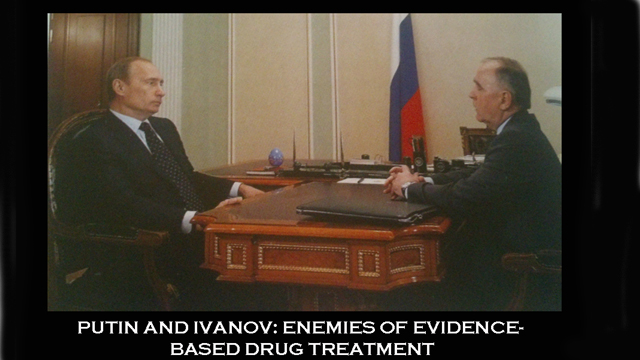The occupation of Crimea will have catastrophic consequences on the situation relating to HIV and drug-use
Crimea is a region which has suffered a lot from the HIV epidemic fuelled by the sharing of needles and syringes among the estimated 14,000 injecting drug users who live here. Unlike their peers in Western Europe, where government investment in harm reduction programs has been able to halt the epidemic, drug users in Crimea have only recently obtained adequate access to evidence-based programs. Opiate substitution, as in Russia, was banned – until after the Orange Revolution, when the situation changed. The Ukrainian government, with the support of the Global Fund to Fight AIDS, Tubercolosis and Malaria, scaled up harm reduction programs. Now, 800 former injecting drug users have legal access to methadone and buprenorphine – drugs on the List of Essential Medicines approved by the WHO. In consequence of this new approach, newly registered HIV cases have dropped significantly. There is clear evidence that the lives of people in opiate substitution treatment have changed for the better: many of them have a job, a home, and a family. Unfortunately, this success is now endangered by the military occupation of Russia.
Mr. Viktor Ivanov, head of the Federal Service for the Control of Narcotics, has announced that one of the priorities of the occupying Russians is to shut down opiate substitution programs (OST). He claims these programs pose a grave danger to public health. Actually, he’s been repeating the same lies about OST for several years now. When we attended the press conference of the Russian delegation at the Commission on Narcotic Drugs (CND) in Vienna a few years ago, we asked him why methadone was illegal in Russia, and his answers followed a similar pattern. We asked NGO and government representatives to comment on Mr. Ivanov’s statement on methadone – watch our video and find out more!
Mr. Ivanov is a former KGB comrade of President Putin, and is considered one of his closest allies. For seventeen years, he served as an officer of the KGB Directorate in Leningrad, and is a veteran of the Afghan war. After the fall of the Soviet Union, he used his political connections to build up his private business interests. In the year 2000, he was appointed Deputy Head of the Presidential Staff for personnel, and joined the board of directors of a number of important defence companies. In 2008, he was appointed director of the world’s largest anti-drug agency, with more staff (40,000) and political influence than the US Drug Enforcement Agency. Since the US relinquished its position as the world’s drug policeman, Russia has laid claim to occupy its empty place. Russia is known as a fierce opponent of evidence-based drug policies at all international forums, and tries to build bilateral partnerships with countries, in order to export its own “war on drugs” model. Banning methadone and buprenorphine programs will force users back into the shadows, where they will have to share needles and enrich the black market. Soviet-type „narcological” programs, promoted by the Russian state, are totally unsupported by scientific evidence and inquiry.
READ INPUD’S OPEN LETTER TO LEARN MORE!
Narcodiplomacy is just another tool for Putin’s regime to regain its status as a world power. The international community needs to be aware that access to life-saving medications such as methadone is not a marginal issue – it is another ideological battlefront where Russia wants to stamp out human rights and values that are essential for all of us, regardless of our individual HIV status or drug-use preference.
Peter Sarosi




